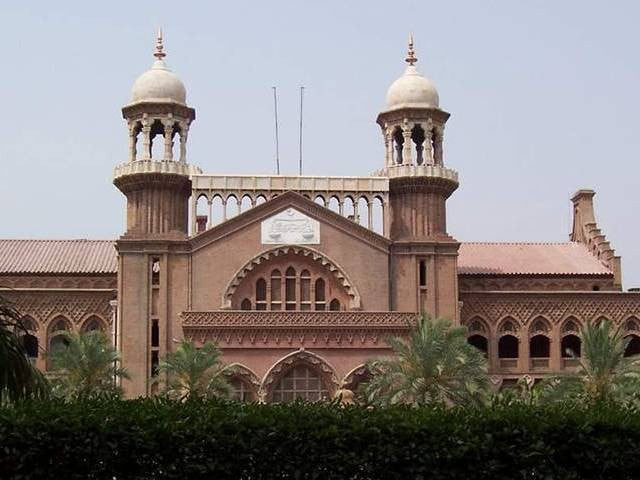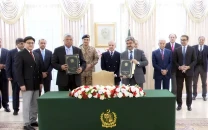Three-week deadline for Punjab ATC appointments
LHC chief justice says judiciary does not need to consult any govt committee to appoint judges

The deadlock over the appointment of anti-terrorism court (ATC) judges in Punjab persists as the Lahore High Court (LHC) on Friday gave the Punjab government three weeks to appoint judges to special courts, including the ATCs.
LHC Chief Justice Malik Shahzad Ahmad Khan resumed hearing a provincial government’s petition seeking the transfer of certain cases from ATC-1 Rawalpindi to another court.
Members of the provincial committee tasked with finalizing the appointments of judges, including Marriyum Aurangzeb, Mujtaba Shujaur Rehman, and Suhaib Ahmed, also appeared in the court.
According to a news report published in The Express Tribune on May 16, the Punjab government has refused to appoint five ATC judges nominated by the LHC chief justice.
The report, citing sources, said in a letter sent to the LHC registrar, the PML-N-led Punjab government called for a “meaningful consultation” on the matter.
Section 14(2)(3)(4) of the Anti-Terrorism Act, 1997 stipulates that a provincial government will appoint ATC judges in consultation with the high court’s chief justice.
Furthermore, consultation with the high court’s chief justice is necessary for the provincial government to remove any ATC judge prior to the completion of their term.
During the proceedings, Marriyum informed the court of the government's stance. "We want to appoint judges in a transparent manner," she said.
Punjab Law Minister Suhaib Ahmed said judge appointments would be made according to the law. He also urged the court to suggest 2-3 names for each position to select from for each special court.
The chief justice, expressing disappointment over the delay in judge appointments, noted that the judiciary does not need to consult any government committee to appoint judges.
"Do not make illegal demands of me. Under which law should I provide a panel of judges' names?" he questioned. "Proceed with the appointments, even if you do not cooperate with me," he added.
Justice Khan noted that if the government had appointed the judges according to the law, the matter wouldn't have reached this point.
Read ATC grants post-arrest bail in May 9 riots case
At this point, the Punjab advocate general sought time for reconsidering the appointments of judges. The LHC later granted the government a three-week deadline to appoint judges for the subordinate judiciary.
"Appoint the judges within three weeks and present a report to the court," directed the Chief Justice. He also ordered a progress report from the government committee by Monday.
Later, talking to the media, Marriyum Aurangzeb said that the provincial government had established a three-member ministerial committee, including herself and the ministers of law and finance.
She said the government had submitted to the court that it did not want to make any remarks, objections, or comments. "By Monday, God willing, we will complete the meaningful consultation process," she added.
She emphasized that the government had always respected the courts, judicial officers, and all judges. She reiterated that no derogatory remarks had ever been made against judges. "We have never attacked the courts or addressed judges disrespectfully," she added.
Over the past two months, the LHC chief justice has convened two full court meetings, during which a majority of judges acknowledged that interference of the country’s intelligence agencies in judicial functions was a widely recognized "secret."
The judiciary in Punjab has suggested eliminating the executive's involvement in the appointment and transfer of special court judges. This step is aimed at curbing judicial manipulation.
The apex court recently sought the high courts’ opinions while hearing the suo motu case of a letter penned by six Islamabad High Court judges in which they accused the security apparatus of interfering in their judicial affairs.
The LHC in its response submitted to the SC stated that there always remained more chances of "interference" in the ATCs and anti-corruption courts, where sensitive matters were decided.
“Therefore, the high courts should be empowered to directly make transfer and postings of the judges of said courts without approval/interference of the federal government. The relevant provisions of law in this respect [should] be directed to be announced immediately," it added.



















COMMENTS
Comments are moderated and generally will be posted if they are on-topic and not abusive.
For more information, please see our Comments FAQ